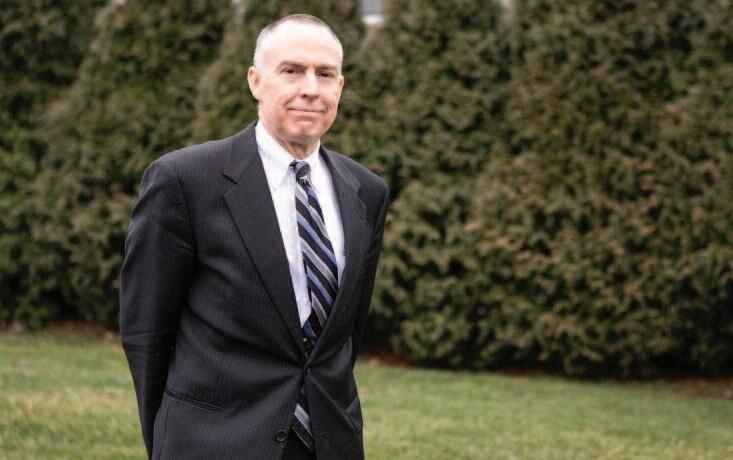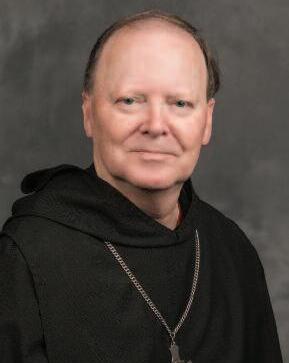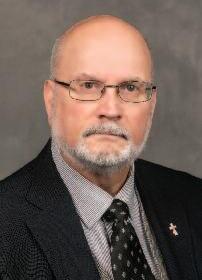

TheGif t Planner
Estate Planning: Five mistakes to avoid

Death is a topic often avoided in our American society, but for Bill Bussing, it is part of his everyday life. Bussing has been a lawyer in Evansville, IN, for almost 40 years and a member of Saint Meinrad’s Einsiedeln Society since 1987. He specializes in estate planning, which includes wills, trusts, and powers of attorney
“Most people have worked all their lives to accumulate an estate,” explains Bussing. “It doesn’t make sense to spend decades working without addressing what happens to the wealth that you’ve accumulated.”
Estate planning is important, because if an Indiana resident dies
without making a will or specifying beneficiaries, the State of Indiana will decide how assets are distributed. Unless the person has done some estate planning, gifts to charity will not be included in that distribution.
“I think most people want to make that decision rather than have it made for them,” says Bussing
“I’ve found that most people are charitably inclined, but unless they make some affirmative plan, that philanthropy will not continue after death.”
Before clients come to meet with Bussing, he encourages them to spend some time deciding how they want their assets divided.
“I always like to think of it as a pie How are we going to slice that pie? How many pieces and how big are the pieces going to be?” he says.
In the event of a client’s death or if he/she becomes incapacitated, a lot of roles will need to be filled, he notes. Who is going to make your healthcare decisions or business decisions? Who will be the executor of your will, or the guardian of your children? Bussing suggests clients name a first and second choice for each role, in case a person is unable to fill it
Over the years, Bussing has seen five common mistakes or misconceptions in estate planning
1. The first mistake is to leave retirement benefits to children and other assets to charity
He explains that most retirement benefits are taxable When money is taken out of a traditional IRA, the beneficiary pays income tax Charities are tax-exempt entities and don’t have to pay income tax
Continued on next page



Bill Bussing


Dear Friends,
Spring is always a time of new beginnings Nature abounds with beginnings as flowers and new plants spring from the earth and our wildlife brings forth new little ones.
Spring is not a time we usually think of endings, and most of us think that writing a will is all about ending. It’s all too easy to put that off.
The reality is that all our beginnings, our families, our work, and so on, are gifts from God.
God expects us to be good stewards of all the blessings He has given us throughout our life, and beyond That means we must care for them now and plan how they will be cared for when we pass to Everlasting Life.
In this Gift Planner, our good friend, Bill Bussing, gives us valuable insights into making good decisions for stewarding God’s gifts through a well-written will.
May God continue to bless you abundantly,

on a distribution from a retirement account.
“It makes no sense to leave a taxable asset to a family member and a non-taxable one to a charity,” he explains. “If you have any charitable inclination, you should leave a portion of your retirement benefits to that charity and other assets to family members ”
2. Another mistake is that people fail to name beneficiaries on assets.
One of the most underutilized tools in estate planning is naming beneficiaries. When people fail to name beneficiaries on assets, at death their estate is forced into probate.
“I could have millions of dollars and if I have beneficiaries on them all, I will avoid probate,” explains Bussing “It is just easier, faster and more efficient if I name beneficiaries.”
Naming beneficiaries extends beyond monetary assets. The State of Indiana allows you to name beneficiaries on vehicles, real estate, and watercraft
3. A common misconception is that the will controls the distribution of beneficiar y-designated assets.
A will only passes assets that are owned in the decedent’s name alone, without a joint owner or a beneficiary.
“For a lot of people, that’s very little, because today many people have assets that already have beneficiaries or are jointly held with someone like a spouse So, the will is far less important than it once was,” says Bussing.
One of the most contentious areas Bussing has encountered, after a client has passed, is the distribution of tangible personal property – items that a beneficiary can’t be added to These are often items of sentimental value and are most treasured by family members.
He advises clients to make a list that specifies who they want to receive what property. In the will, there will be a line that says if that list exists at the time of death, the executor will distribute those items
4. Another misconception is that some people think they can avoid probate by not writing a will
Bussing tries to teach his clients how to avoid probate. Probate involves court costs, attorney fees and a delay in distribution. In

Having a will isn’t just for u “senior citizens.”
Even young people should consider writing a will, especially if they have children If you ’ re
uncertain how to get started, we can help. I’d love to hear from you.
Michael Shumway Director of
Planned
Giving and Foundation Relations
Rt. Rev. Kur t Stasiak, OSB Archabbot of Saint Meinrad
Indiana, there’s a $50,000 threshold before you have to face probate
“If most of your assets have beneficiaries or joint owners, regardless of size, you’ll avoid probate as long as the rest of your assets total no more than $50,000,” explains Bussing “Whether or not you use a will, if you have assets in your name alone worth more than $50,000, you’ll face probate ”
5. A final misconception is that you have to be rich to make charitable gifts.
Bequests in wills are not just for the rich and famous; they are for ordinary, hardworking people. Some clients worry that if they give to charity, there won’t be enough to leave for family There are ways of leaving charitable gifts without adversely affecting family, so you can do both
“Philanthropy is not just the domain of the wealthy,” says Bussing “Our country was founded on the tradition of people helping other people, and I think those of us who have resources should consider using a portion of them to help those less fortunate.”
Bussing’s final advice to clients is to talk to their family about their wishes at the time of death In most cases, the more transparent you can be, the better.
“I’ve seen families split apart because of issues after death where Mom and Dad aren’t there to explain why they did it that way,” he says
“If you are going to make a gift to Saint Meinrad or any other charity, why not tell the kids beforehand rather than afterward? And explain why you’ve named that charity and let them know how important it is to you.” ◆
Wills are easier than you think
“I don’t know how large my estate will be. How can I take care of my family and still leave a bequest to Saint Meinrad?”
It’s easy to worry about how to divide your estate in your will One thing to consider is to use percentages instead of actual dollar amounts. That way, no matter the eventual size of your estate, all the people and organizations you want to provide for can be taken care of.
By using percentages, you can, for example, leave 80% of your estate to be divided equally among your children, then designate the remaining 20% to be divided equally among a list of charities that have been important to you
This is a simple illustration, but you can be more creative Just talk to your attorney


Neither the author, the publisher, nor this organization is engaged in rendering legal or tax advisory service
For advice or assistance in specific cases, the services of an attorney or other professional advisor should be obtained The purpose of this publication is to provide accurate and authoritative information of a general character only Watch for tax revisions. State laws govern wills, trusts and charitable gifts made in a contractual agreement
Advice from legal counsel should be sought when considering these types of gifts © Saint Meinrad Archabbey, 2020




